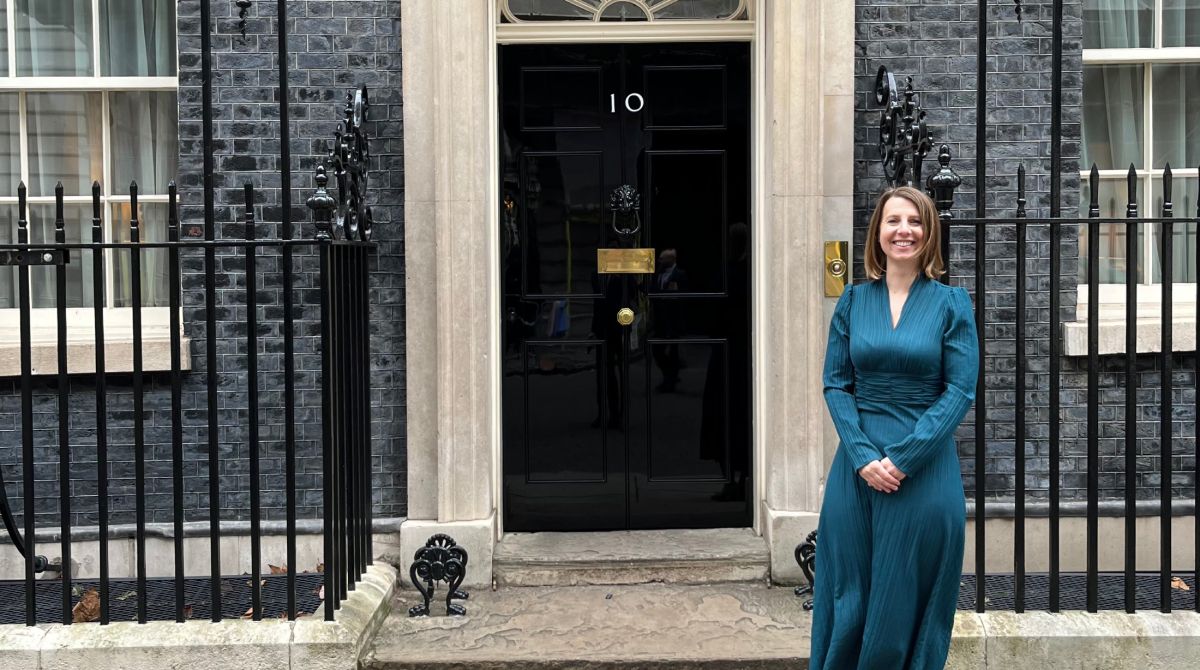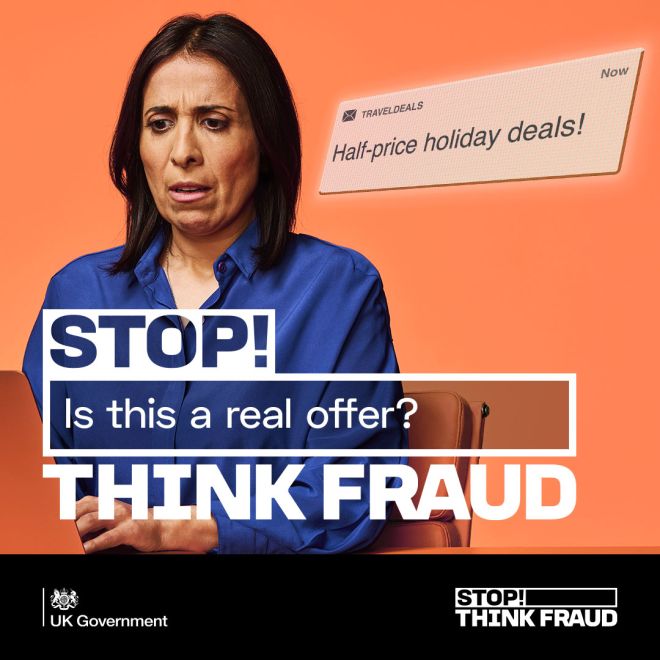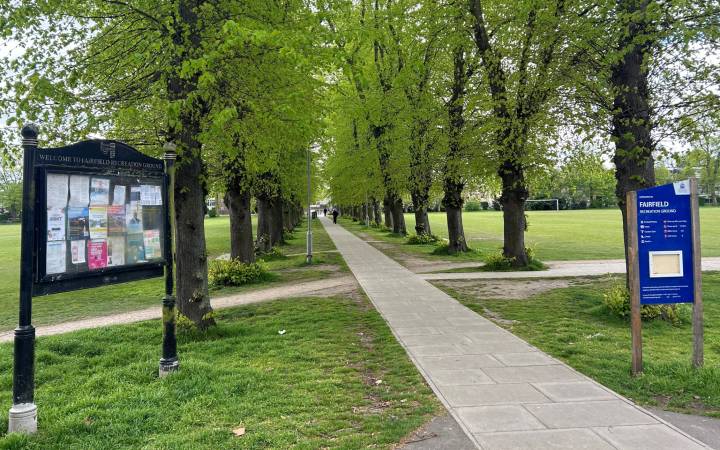Kingston University expert Dr Elisabeth Carter serves as lead academic adviser on major government anti-fraud campaign
Posted Tuesday 26 March 2024
 As part of the campaign launch, Dr Carter joined a group of experts for a special reception at Number 10 Downing Street.
As part of the campaign launch, Dr Carter joined a group of experts for a special reception at Number 10 Downing Street.
A criminology expert from Kingston University has shared her specialist knowledge as lead academic adviser on a new government campaign set up as part of measures to combat fraud at a national level.
Associate Professor Dr Elisabeth Carter, an accomplished criminology researcher and forensic linguist, was invited to play a role in the Home Office's Stop! Think Fraud campaign after rising to prominence as a media commentator and heading a number of national working groups. In the run up to the report launch – part of the Government's Fraud Strategy – she joined fellow experts to examine the way fraud, estimated to cost £6.8 billion in England and Wales, was communicated and addressed.
The launch of the campaign marked the culmination of months work and has produced a raft of messaging raising awareness about the risks of fraud, ways to combat it and how victims of fraud can both report the crime and access support following an incident. The campaign is being prominently displayed on billboards and in other public settings and is also being widely promoted on radio, television and across social media. It is anticipated the messaging will reach 95 per cent of adults in the UK.
As part of Stop! Think Fraud, an online hub is also now available to provide concise, simple to follow advice to those affected and signpost them to relevant organisations for further support.
 Dr Carter joined fellow experts to examine the way fraud was communicated and addressed.
Dr Carter joined fellow experts to examine the way fraud was communicated and addressed.
"The aim of the use of very specific language in the campaign is to change commonly accepted narratives to raise awareness that fraud can happen to anyone. Some victims may be more vulnerable than others, but it is not being vulnerable that makes individuals a victim of fraud," she explained. "The use of language is really important, avoiding blame-based phrases such as ‘fall for' and encouraging people to report crimes."
Offering practical tips to avoid fraud, Dr Carter advised people not to feel pressured to act in a rush – often a tactic used by fraudsters to motivate their victims. "If you're making decisions that involve money, talk to a friend or family member before making financial commitments," she said. "Tell the person you're communicating with that you don't keep matters around money secret from your friends and family. If they have an issue with you protecting yourself, then they aren't someone you should be dealing with. Nothing is that urgent that it needs money that day and there will never be a situation where you are the only person who can help."
Speaking at the launch of the strategy, Home Secretary James Cleverly said the cross-government fraud strategy would play an important role in delivering for British people. "This new campaign is a powerful tool to add to our arsenal, which already includes a world-first agreement from tech firms to prevent online fraud and the roll out of a National Fraud Squad that has 400 expert investigators," he said.
As part of the campaign launch, Dr Carter joined a group of experts for a special reception at Number 10 Downing Street. They were joined for the occasion by the Home Secretary, as well as the Prime Minister's Anti-Fraud Champion Simon Fell MP, representatives from a variety of financial institutions and the Metropolitan Police. Dr Carter was also a participant at the first Global Fraud Summit, held in London, contributing to discussions on tackling fraud as an international community.
- Find out more about studying criminology at Kingston University.
- Read more about the Stop! Think Fraud campaign.
Contact us
General enquiries:
Journalists only:
- Communications team
Tel: +44 (0)20 8417 3034
Email us



